Related Research Articles

Arne Carl-August Beurling was a Swedish mathematician and professor of mathematics at Uppsala University (1937–1954) and later at the Institute for Advanced Study in Princeton, New Jersey. Beurling worked extensively in harmonic analysis, complex analysis and potential theory. The "Beurling factorization" helped mathematical scientists to understand the Wold decomposition, and inspired further work on the invariant subspaces of linear operators and operator algebras, e.g. Håkan Hedenmalm's factorization theorem for Bergman spaces.

Andrew Chi-Chih Yao is a Chinese computer scientist and computational theorist. He is currently a professor and the dean of Institute for Interdisciplinary Information Sciences (IIIS) at Tsinghua University. Yao used the minimax theorem to prove what is now known as Yao's Principle.
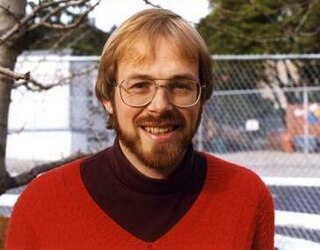
Richard Lawrence Taylor is a British mathematician working in the field of number theory. He is currently the Barbara Kimball Browning Professor in Humanities and Sciences at Stanford University.

Jack Joseph Dongarra is an American computer scientist and mathematician. He is the American University Distinguished Professor of Computer Science in the Electrical Engineering and Computer Science Department at the University of Tennessee. He holds the position of a Distinguished Research Staff member in the Computer Science and Mathematics Division at Oak Ridge National Laboratory, Turing Fellowship in the School of Mathematics at the University of Manchester, and is an adjunct professor in the Computer Science Department at Rice University. He served as a faculty fellow at the Texas A&M University Institute for Advanced Study (2014–2018). Dongarra is the founding director of the Innovative Computing Laboratory at the University of Tennessee. He was the recipient of the Turing Award in 2021.

Gerd Faltings is a German mathematician known for his work in arithmetic geometry.

Manindra Agrawal is a professor at the Department of Computer Science and Engineering and the Deputy Director at the Indian Institute of Technology, Kanpur. He was also the recipient of the first Infosys Prize for Mathematics, the Godel Prize in 2006; and the Shanti Swarup Bhatnagar Award in Mathematical Sciences in 2003. He has been honoured with Padma Shri in 2013.
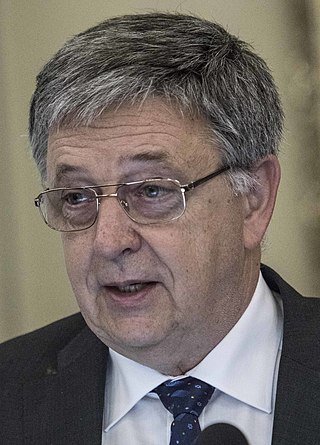
László Lovász is a Hungarian mathematician and professor emeritus at Eötvös Loránd University, best known for his work in combinatorics, for which he was awarded the 2021 Abel Prize jointly with Avi Wigderson. He was the president of the International Mathematical Union from 2007 to 2010 and the president of the Hungarian Academy of Sciences from 2014 to 2020.
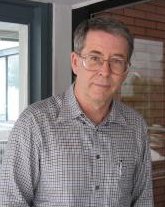
Michael George Aschbacher is an American mathematician best known for his work on finite groups. He was a leading figure in the completion of the classification of finite simple groups in the 1970s and 1980s. It later turned out that the classification was incomplete, because the case of quasithin groups had not been finished. This gap was fixed by Aschbacher and Stephen D. Smith in 2004, in a pair of books comprising about 1300 pages. Aschbacher is currently the Shaler Arthur Hanisch Professor of Mathematics at the California Institute of Technology.

Lennart Axel Edvard Carleson is a Swedish mathematician, known as a leader in the field of harmonic analysis. One of his most noted accomplishments is his proof of Lusin's conjecture. He was awarded the Abel Prize in 2006 for "his profound and seminal contributions to harmonic analysis and the theory of smooth dynamical systems."
Michael Ellis Fisher was an English physicist, as well as chemist and mathematician, known for his many seminal contributions to statistical physics, including but not restricted to the theory of phase transitions and critical phenomena. He was the Horace White Professor of Chemistry, Physics, and Mathematics at Cornell University. Later he moved to the University of Maryland College of Computer, Mathematical, and Natural Sciences, where he was University System of Maryland Regents Professor, a Distinguished University Professor and Distinguished Scholar-Teacher.
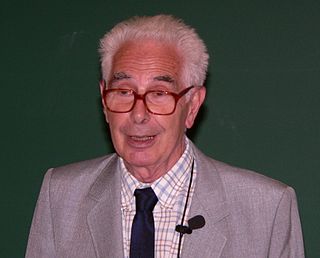
Jean-Pierre Kahane was a French mathematician with contributions to harmonic analysis.

Hyman Bass is an American mathematician, known for work in algebra and in mathematics education. From 1959 to 1998 he was Professor in the Mathematics Department at Columbia University. He is currently the Samuel Eilenberg Distinguished University Professor of Mathematics and Professor of Mathematics Education at the University of Michigan.
James Greig Arthur is a Canadian mathematician working on automorphic forms, and former President of the American Mathematical Society. He is a Mossman Chair and University Professor at the University of Toronto Department of Mathematics.
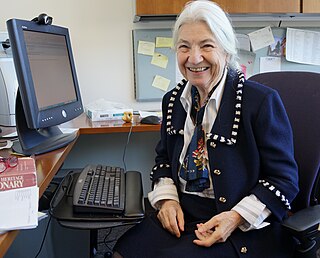
Ruzena Bajcsy is an American engineer and computer scientist who specializes in robotics. She is professor of electrical engineering and computer science at the University of California, Berkeley, where she is also director emerita of CITRIS.

Michael Aizenman is an American-Israeli mathematician and a physicist at Princeton University, working in the fields of mathematical physics, statistical mechanics, functional analysis and probability theory.

Idun Reiten is a Norwegian professor of mathematics. She is considered to be one of Norway's greatest mathematicians today.

Carl Svante Janson is a Swedish mathematician. A member of the Royal Swedish Academy of Sciences since 1994, Janson has been the chaired professor of mathematics at Uppsala University since 1987.
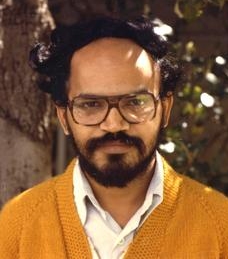
Shrikrishna Gopalrao Dani is a professor of mathematics at the Centre for Excellence in Basic Sciences, Mumbai who works in the broad area of ergodic theory.

Gaven John MartinFRSNZFASLFAMS is a New Zealand mathematician. He is a Distinguished Professor of Mathematics at Massey University, the head of the New Zealand Institute for Advanced Study, the former president of the New Zealand Mathematical Society, and former editor-in-chief of the New Zealand Journal of Mathematics. He is a former Vice-President of the Royal Society of New Zealand [Mathematical, Physical Sciences Engineering and Technology. His research concerns quasiconformal mappings, regularity theory for partial differential equations, and connections between the theory of discrete groups and low-dimensional topology.

Luke O’Connor Drury is an Irish mathematician and astrophysicist at the Dublin Institute for Advanced Studies (DIAS) with research interests in plasma physics, particle acceleration, gas dynamics, shock waves, and cosmic rays. He was President of the Royal Irish Academy from 2011 to 2014.
References
- ↑ Institute for Advanced Study: A Community of Scholars Archived 2013-01-06 at the Wayback Machine
- ↑ "Mathematics Genealogy Project : Michael Benedicks". Genealogy.math.ndsu.nodak.edu. Retrieved 2010-06-27.
- 1 2 "Femton nya ledamöter invalda i akademien (Fifteen new members elected to the Academy)" (Press release) (in Swedish). Royal Swedish Academy of Sciences. Retrieved 2010-06-27.